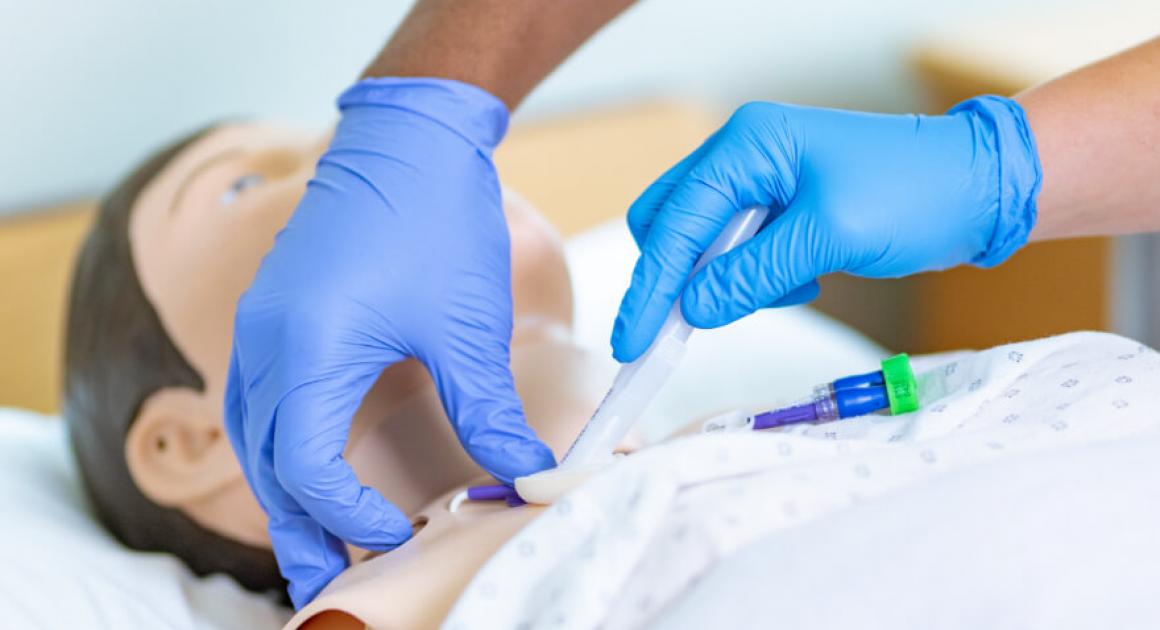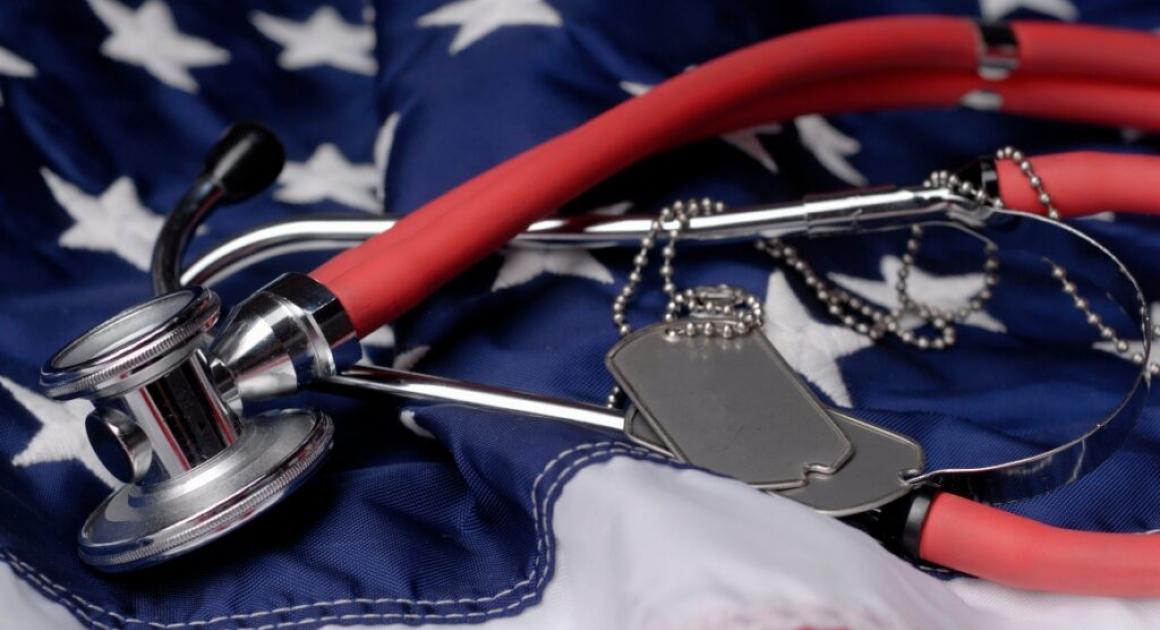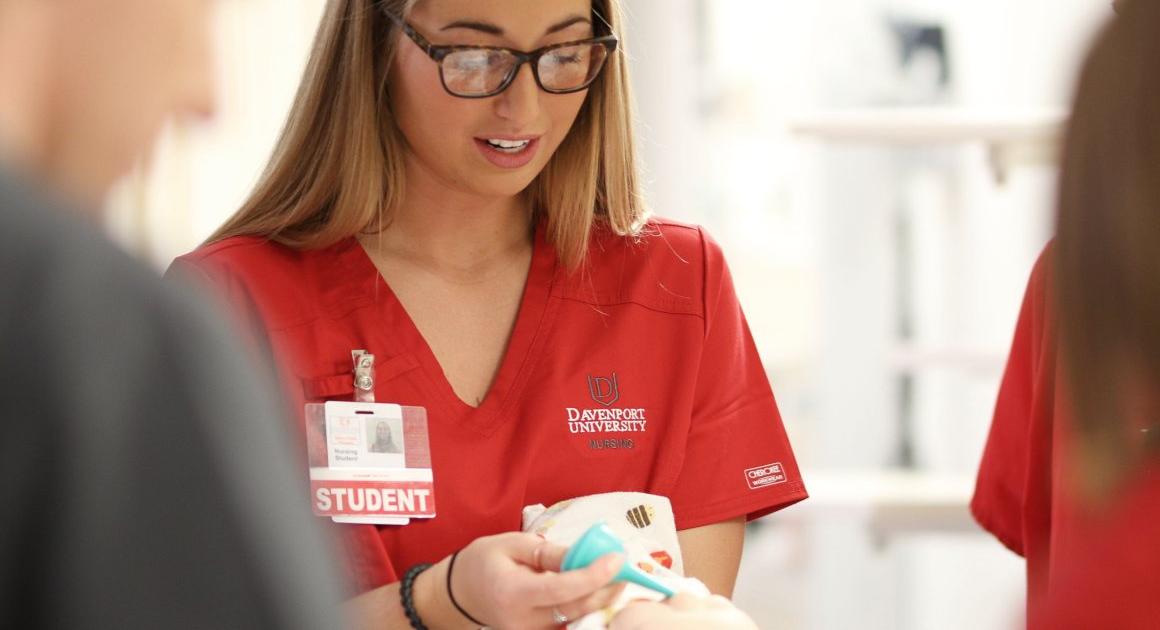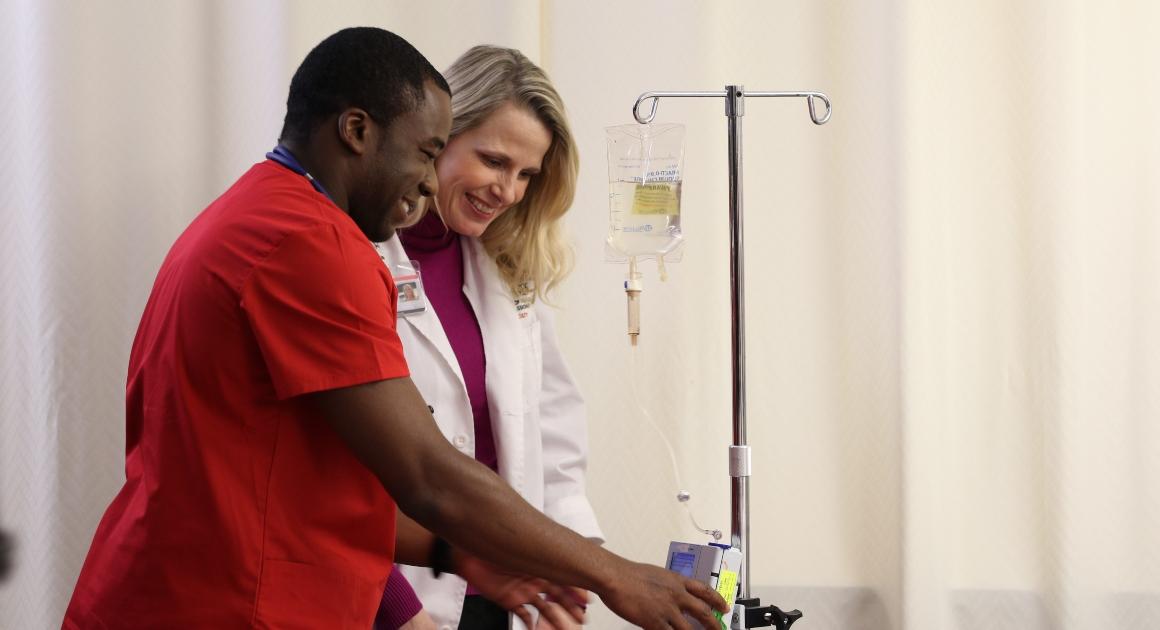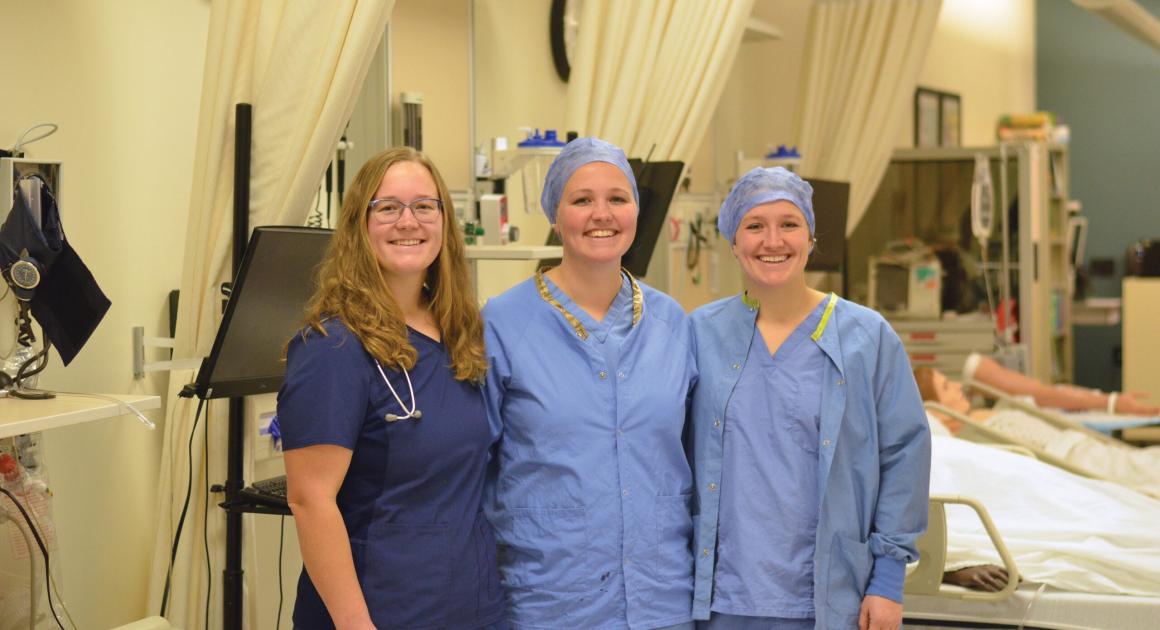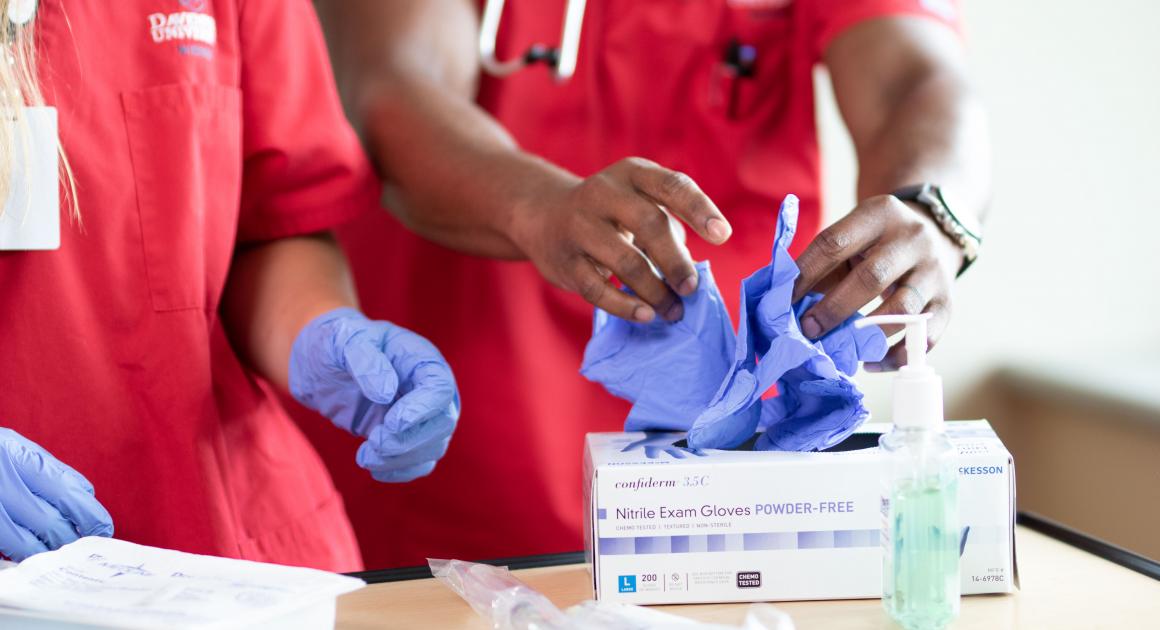Your nursing career starts now: No wait lists, no delays
Bachelor of Science in Nursing (120 credits)
Begin your path to a successful career as a nurse through the Bachelor of Science in Nursing: Pre-Licensure program at Davenport University. The Bachelor of Science in Nursing (BSN) fully prepares you for licensing exams and builds a solid foundation for your future in nursing. In fact, we’re so confident our nursing program will lead you to a career as a nurse within six months of graduation that our nursing program qualifies for Davenport’s Employment Guarantee.
Unlike some nursing schools, acceptance into Davenport's nursing program guarantees you a seat. This guarantee is made without a prerequisite requirement and ensures you aren't placed on a waitlist.
Davenport’s nursing degree is offered on our campuses in Warren, Grand Rapids, Lansing and Midland and is designed for students with no prior nursing experience. Grants and scholarships, including an $8,000 nursing scholarship, are available for our Warren, Lansing and Midland campuses.
CCNE-accredited nursing program 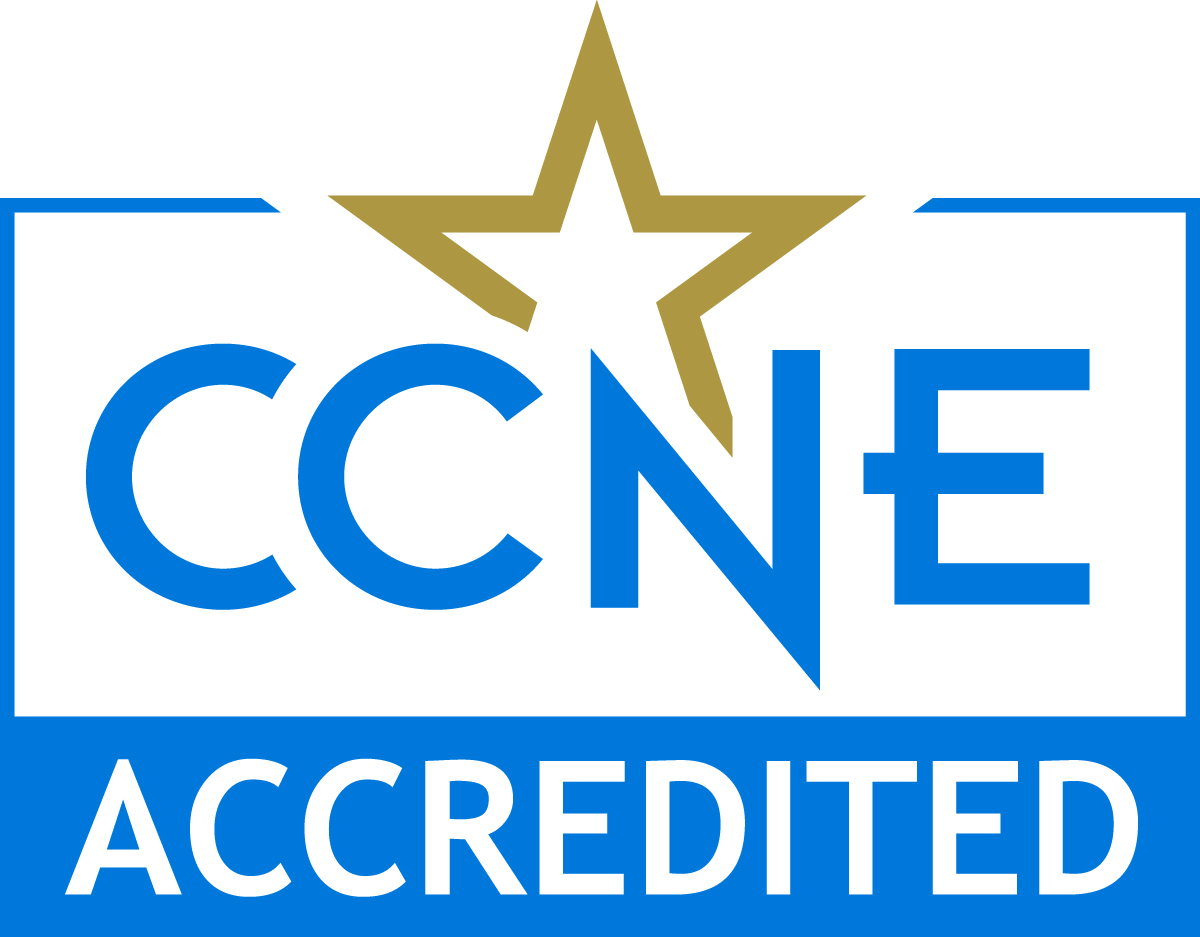
Davenport’s nursing program is accredited by the Commission on Collegiate Nursing Education (CCNE), the gold standard of accreditation for nursing schools. CCNE accreditation means you can be assured of the quality and integrity of our nursing program. Earning a bachelor’s degree in nursing from an accredited nursing program is especially important for admittance into grad school.
Admission Routes |
Standard Nursing AdmissionTake and submit the Test of Essential Academic Skills (TEAS) score for admission evaluation and complete a short answer critical thinking question. |
Pre-Nursing Direct AdmitEnroll or transfer in prerequisite courses for direct admission. Achieve a 3.0+ GPA in each of the following courses:
Take at Davenport or transfer in the equivalent *Any student meeting Direct Admit criteria will have their essay and TEAS exam waived. If a pre-nursing student does not pass a pre-nursing course with a 3.0+ GPA, they can opt to take the TEAS exam later for admission. |
High School Direct Admit3.5+ high school GPA and 1160+ SAT or 24+ ACT score required for direct admission. |
Military Direct Admit (VBSN)Honorably discharged military members with paramedic-level training equivalent to Medic 68W (Levels 10/20) or Navy Corpsman qualify for direct admission. |
Click here to start your nursing application
Explore classes for Davenport’s nursing degree
Through this full-time nursing program, you’ll take a range of courses to prepare for a career as a nurse. You’ll receive advanced cardiac life support training and have the opportunity to explore two specialties during your medical/surgical rotation. Davenport’s supportive and caring nursing faculty and staff members get to know you and what you need to thrive. Learn from expert-level nurse educators, and benefit from dedicated mentors. They’ll create a customized Student Care Plan if needed to help you succeed in nursing school.
Which class should I take? When should I take it?
See our Recommended Program Sequences:
Credits for your experience toward nursing
Why a bachelor’s in nursing at Davenport University?
Whether you’re coming from high school or community college or already working as an RN or ADN, there are many routes into Davenport’s nursing program. Whichever path you choose, you’ll have the one-on-one support of Davenport’s caring nursing faculty and staff. These and other differentiators of Davenport’s bachelor's in nursing lead to higher-than-average NCLEX exam scores and 100% employment in nursing.
Experience the Davenport difference:
| |
Credit for experienceDavenport will help turn your existing job in health care, transfer credits, military background and credentials into credits. |
 |
Guaranteed job in health careYou’re guaranteed to launch a career as a nurse within six months of graduation through Davenport’s Employment Guarantee. |
| |
Licensing exam prepPrepare to take — and pass — licensure exams with the help of nursing faculty who will coach you and give you extra assistance. |
In-demandOur graduates are highly sought after by leading health care systems across Michigan. |
| |
No waiting for experienceThrough the bachelor's in nursing program, you’ll start clinicals in your sophomore year so you receive three years of focused experience. |
| |
Finish in 4 yearsUnlike some nursing schools, you can finish your Bachelor of Science in Nursing at Davenport full-time in four years, not five. |
Get started on your bachelor’s in nursing
Explore the admissions requirements, and then take the next step toward earning your nursing degree at Davenport.
Talk to an admissions advisor
Davenport’s admissions team is here to answer your questions. Please call us at 800.686.1600, or email us at info@davenport.edu.
Apply now or request more information
Start on the road to a successful career as a nurse. Request more information or begin your application now.
Click here to view admissions requirements
Criminal Background Check and Drug Screen Policy:
All students in the Davenport University College of Health Professions (the "COHP") are required to submit to criminal background check and drug screening (collectively, the "Testing") at the time of declaring a major in the COHP. The results of the Testing (the "Results"), which shall remain confidential, shall be used by the COHP to approve or disapprove of a Student for enrollment or continued enrollment in the COHP, and/or eligibility for training programs, clinical or practicum. The Testing shall be completed by registering for the appropriate course and completing the entire testing process in the course. Each student is responsible for acknowledging and explaining positive Result(s) after completing the process. A student will be dismissed from the COHP if he or she refuses to consent to the Testing. The cost of the Testing is the part of the course fee and is the responsibility of the student.
Additional resources
Length of Program:
- BSN-PL Grand Rapids (120 Credits) – One full cohort of 64 students accepted in the fall of each year.
- BSN-PL Grand Rapids (120 Credits)- One full cohort of 32 students accepted for Winter semester start each year.
- BSN-PL Warren (120 Credits) – One full cohort of 60 students accepted in the fall of each year.
- BSN-PL Lansing (120 Credits) – One full cohort of 32 students accepted in the fall of each year
- BSN-PL Midland (120 Credits) – One full cohort of 36 students accepted in the fall of each year.
The formation of nursing professionals at Davenport University is based on a conceptual model, adapted from Fawcett's metaparadigm and various educational theories, that includes five over-arching concepts: the human person, nursing, health, environment/society, and the teaching/learning process.
- Human Person - Human beings are unique, adaptable, and possess inherent dignity, thus worthy of caring, nurturing, and respect. Human beings exist in highly valued reciprocal relationships with others.
- Environment/Society - Human beings exist within a dynamic physical, social, and cultural environment. The environment impacts the health of individuals, groups, and populations and as such, is a relevant consideration for the nurse.
- Health - Health is individually defined by the distinct perspective of each human person or group, based on unique goals for optimizing quality of life, mental health, and functional status. Health is a dynamic state, continually changing, and all can improve health as it is individually defined by each person.
- Nursing - Nursing is a caring profession that embraces a holistic approach to healthcare, in fully recognizing the interconnectedness of biological, psychological, social, cultural, and spiritual factors that contribute to health. Nurses are autonomous healthcare providers, accountable for their practice as determined by academic preparation, licensure, and certification. Nursing has its own scientific body of knowledge built from a foundation of biological and social sciences and adheres to a code of ethical behavior.
- Teaching/Learning - Teaching and learning is a collaborative interaction between teacher and learner, with mutual accountability for active engagement, respectful communication, and constructive problem-solving. The faculty recognize that learners, as human persons, are unique and present with a variety of learning styles, developmental stages, and life experiences that create individual states of readiness for transformational learning. Learning is active, builds on prior knowledge, requires intrinsic motivation, and leads to a measurable change in knowledge, behavior, and nursing clinical judgment. Faculty engage in evidence-based pedagogies and provide an equitable and inclusive learning environment for all.
1. Care Delivery: Integrates clinical judgment and evidence to develop, implement and evaluate person-centered plans of care for clients in diverse populations encompassing individuals, families, and communities across the lifespan.
2. Care Coordination: Manages nursing care of individuals, families, and communities, through coordination of resources and in collaboration with the interprofessional healthcare team, to promote safe, high-quality care and equitable outcomes.
3. Professionalism: Displays a commitment to the current standards of professional nursing practice according to the American Nurses Association.
4. Quality Management: Applies knowledge of information technology, leadership behaviors, and systems-based thinking to ensure quality and safety in complex healthcare systems.
5. Health Management: Promotes equitable health outcomes for diverse populations through assessment of risks, evidence-based prevention strategies, coordination of resources, and policy development.
6. Personal Development: Utilizes self-reflection and self-advocacy to promote personal well-being and resilience.
Effective July 1, 2024, the Department of Education requires all programs that prepare students for occupations requiring licensure to meet all licensing requirements for each State in which a new student is located, if they are not enrolled in face-to-face instruction or in a State in which a student attests they intend to seek employment. Schools are required to disclose to students whether a program leading to licensure meets the educational requirements for licensure or certification in a state.
This program leads to professional licensure. Graduates of the Davenport Bachelor of Science in Nursing: Pre-Licensure program are eligible to sit for the National Council Licensure Examination (NCLEX) administered by the National Council of State Boards of Nursing (NCSBN). After successful completion of this examination, the individual will be eligible to apply for a license in their home state.
If you have additional questions regarding licensure please contact Aleta Pillai.
About Davenport University
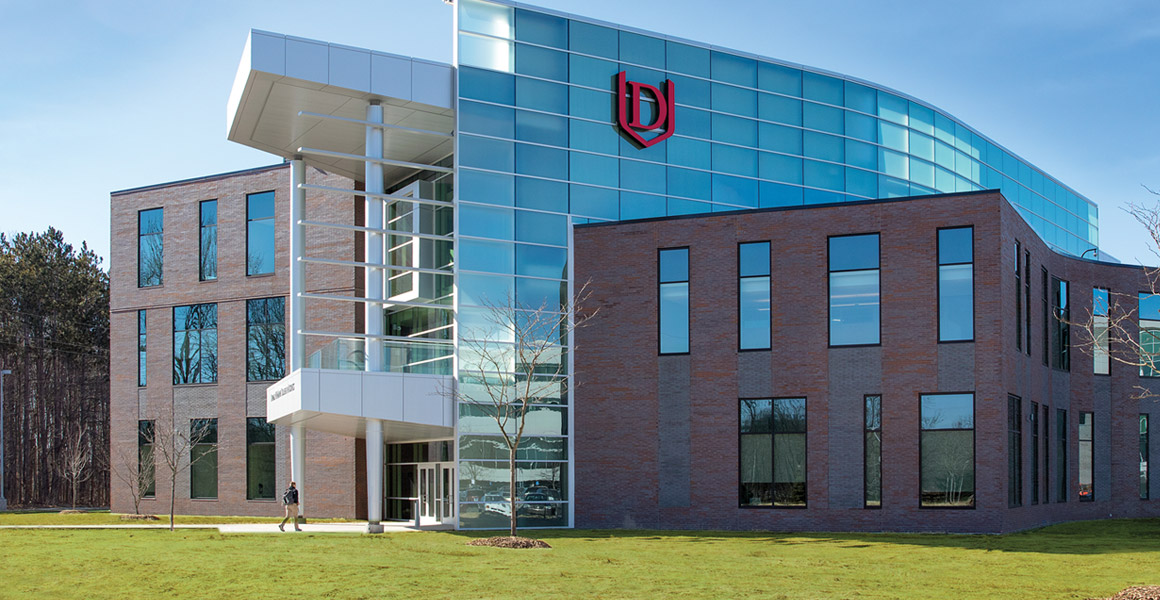
Davenport is a private, not-for-profit university with more than 150 years of experience preparing students for successful careers.
Offering over 100 degree and certificate programs, we align with top employers to design degree programs that help you gain the skills and real-world experience you need to rise above the rest. With small class sizes and campuses across Michigan or online, you’ll earn a quality education on your schedule at Davenport University.
Some programs require a student to complete a portion of their degree plan off campus.
View a full list of those programs and courses
Source:
Davenport University, 2024/2025 Catalog
Davenport University Employment Guarantee, Feb. 2024
